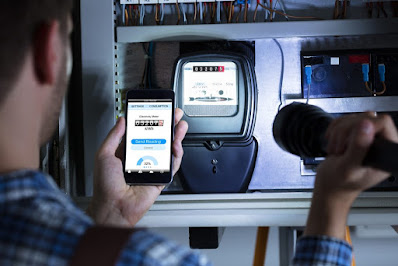How thermostats impact on commercial hvac and air conditioning system efficiency
Did you know that the way you use your thermostats affect
how efficiently your HVAC system operates?
Commercial buildings often have strict temperature requirements in order to
maximize the comfort of everyone in the space. During seasons with extreme
weather, like the hot summer months we’re experiencing now, using your
thermostats correctly will make your HVAC system run more efficiently and save
you money on your monthly energy bills.
To understand a bit more about why this is, let’s first take
a few steps back. The thermostats tell your HVAC system how to operate – when
to turn on, when to turn off, and the exact temperature your building needs to
be at different points throughout the day. You may think it’s as simple as
turning the thermostat down when you want a room to be cooler and turning it up
when you want the air conditioning to switch off, but it can be a bit more
complex than that.
If you’re a business owner and you walk into your shop first
thing in the morning, after having the air conditioner set to a higher
temperature all night, it probably feels very hot and stuffy. You want to cool
the place down as quickly as possible, so your instinct might be to set the
thermostat to a number that’s lower than your desired temperature. But this
doesn’t make your space cool down more quickly. In fact, it causes your air
conditioner to work harder and longer to reach the temperature you’ve set,
wasting energy and leaving you with higher monthly costs. The same thing is
true for heating in the winter – setting your heating to a warmer-than-average
temperature will not warm up your space more quickly, but it will cause your
heating system to work overtime and leave you with higher bills.
We recommend setting the thermostat to the exact temperature
you want it to be while you’re in the space. So, when you open in the morning
after leaving your air conditioner on 80°F overnight, and you want
your building to be at 70°F, simply put the thermostat on 70°F – it’s not
necessary to set it any lower. For commercial spaces we do not recommend
shutting the air conditioning system off entirely overnight, because the next
morning it will have to work too hard to get the air back to the desired
temperature. Instead, set the thermostat to a higher number, around 80°F,
before leaving in the evening.
Another thing that affects the efficiency of your HVAC
system is constantly adjusting the thermostat, even if the adjustments are
small. Getting the right temperature in a commercial space can be tricky, and
you’ll always have people complaining that it’s too hot or too cold, but
continuous thermostat adjustments will make your air conditioner work harder
and waste energy. Instead, we recommend choosing one temperature and sticking
with it.
Sometimes, the thermostat itself is the problem. Thermostats
need regular maintenance like any other system in your building, and if your
thermostat is more than 10 years old, it may be time to upgrade to a more
energy-efficient system.
Learn more about commercial HVAC control systems
At Tri-Tech
Energy, we provide a range of commercial air conditioning solutions. Call
our team today and discover why so many people partner with us fr HVAC control
systems. We look forward to hearing from you.
Original content is posted on https://www.tritechenergy.com/blog/commercial-heating-systems/thermostats-impact-commercial-hvac-air-conditioning-system-efficiency/


Comments
Post a Comment